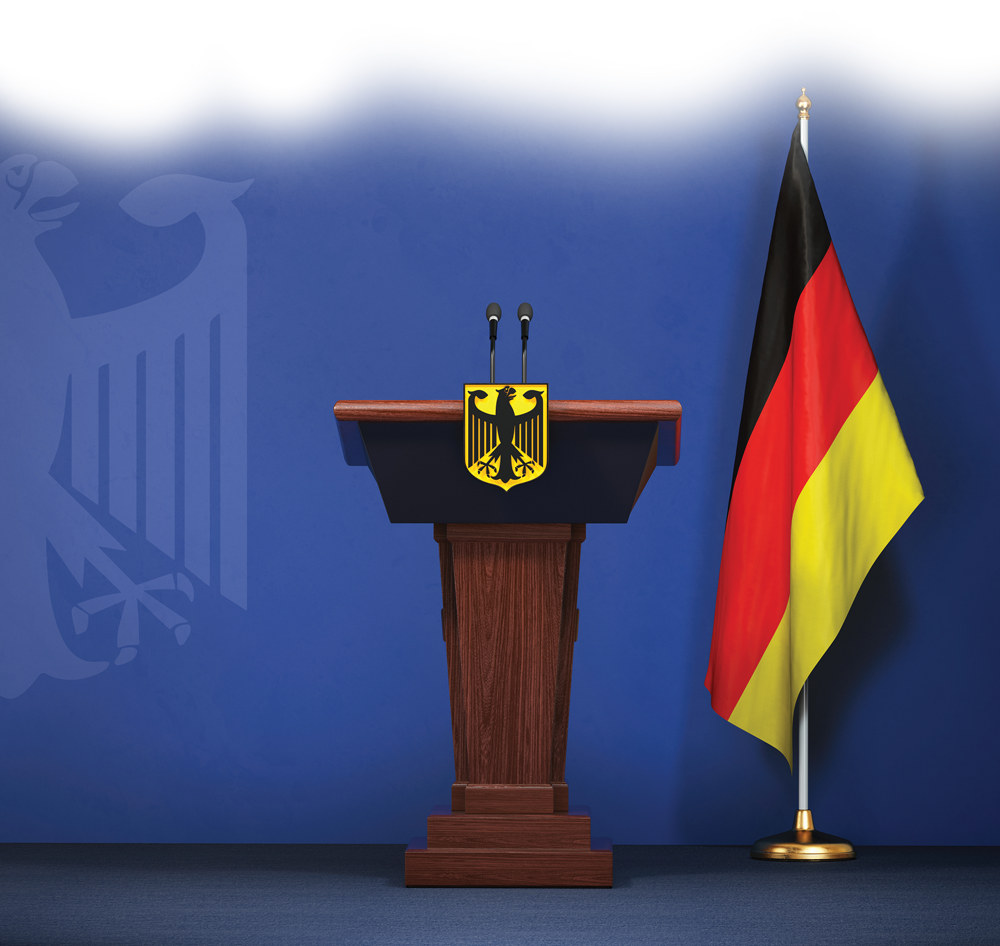GERMANY
FEATURE
 Germany:
Germany:Reliable and
Strong Partner
of the B20
 Germany:
Germany:Reliable and
Strong Partner
of the B20
 Germany:
Germany:Reliable and
Strong Partner
of the B20
GERMANY
FEATURE
 Germany:
Germany:Reliable and
Strong Partner
of the B20
 Germany:
Germany:Reliable and
Strong Partner
of the B20

We thus know firsthand that globalization creates many opportunities – but also vulnerabilities. The future of the German economy decisively depends on how global challenges such as cyber risks, climate change, epidemics, and geopolitical conflicts are managed. No country can master these challenges alone. The globalized world economy needs global governance. When Germany took over the G20 presidency in 2016, there was therefore no question that the Federation of German Industries (BDI), the Confederation of German Employers’ Associations (BDA) and the Association of German Chambers of Commerce and Industry (DIHK) would jointly organize the B20 process. After the B20 handover to the Argentine G20 Presidency, the work of B20 Germany was by no means done. We continued our efforts by working closely together with our Argentinian partners in the B20 Troika, just as we actively and enthusiastically supported this year’s Japanese B20 process.
The work of the B20 is more important than ever. Trade distortive practices – tariffs, non-tariff barriers, subsidies, theft of intellectual property rights, and forced technology transfer, to name a few – are in vogue. More and more countries are pursuing go-it-alone strategies. This is unfortunate as trade and investment are indispensable for economic growth and development worldwide. Over the last decades, they have lifted billions of people out of poverty. To ensure that everybody benefits from trade, however, we need open and rules-based markets. Thus, we are vehemently advocating the G20 to recommit to a protectionist standstill and rollback, and to advance the reform of the World Trade Organization. We need a strong WTO as guardian of fair competition. We therefore ask the G20 to work together in order to advance the organization’s rulebook to more effectively address distortions caused by state-owned enterprises and subsidies, to forge ahead with plurilateral initiatives such as on e-commerce, and to pursue a meaningful reform of the dispute settlement mechanism.
Trade is not the only area in which the G20 needs to take more decisive action. Digitalization is affecting our day-to-day life. It is changing how we communicate, travel, and work. It offers immense opportunities – but, if not managed well, it can also have immense disruptive effects. To ensure that everybody has the opportunity to benefit from digitalization, the G20 should work more closely to ensure the free flow of data in order to facilitate digital trade. Furthermore, the G20 countries should strengthen their cooperation on cybersecurity within international fora as well as by collaborating on IT-security-related policies and standards rather than pursuing separate national approaches. Last but not least, we would like to see the G20 more deeply to discuss the evolution of human-centric artificial intelligence, enabling the evolution of voluntary international standards.
International cooperation has become more difficult; the G20 is increasingly struggling to find a meaningful consensus. However, the G20 should not be judged solely on its track record of adopting and implementing resolutions. One of the group’s key functions is to provide a platform for informal, cross-sector and flexible exchange on the highest political level. The opportunity for global leaders to sit together at the G20 table cannot be overestimated. Constant communication supports a common problem analysis that enables the development of cooperative solutions in an atmosphere of trust, thereby facilitating the implementation of G20 resolutions.
This holds true also for the B20. The B20 plays a vital role in the G20 process, providing the G20 with firsthand expertise and knowledge necessary to govern the global economy. The recommendations of the B20 matter! The reports of the International Chamber of Commerce and B20 Germany of G20 Communiqués underline the high responsiveness of the G20 to the B20 recommendations. With its networks and people-to-people dialogues, the B20 helps to strengthen the G20 community. It fosters the exchange of ideas and best practices and helps to identify common interests, building trust and understanding as well as consensus. In today’s uncertain times, this is more important than ever. Representativeness – transparency – accountability – B20 is a member-driven organization. It will only be effective if its positions are strongly based on consensus among its members. Transparency of decision-making processes and a representative membership are key. Each B20 presidency needs to ensure continuity, following up on the recommendations of previous presidencies. The B20 has a solid track record on all of these accounts.
Global prosperity can only be secured through cooperation and multilateralism. Germany has been a reliable and strong partner for the G20 and B20, and we promise to continue our efforts – during the B20 Japan cycle, as well as the upcoming presidencies.
DR. STORMY-ANNIKA MILDNER is Head of Department External Economic Policy of the Federation of German Industries and B20 Germany Sherpa.

